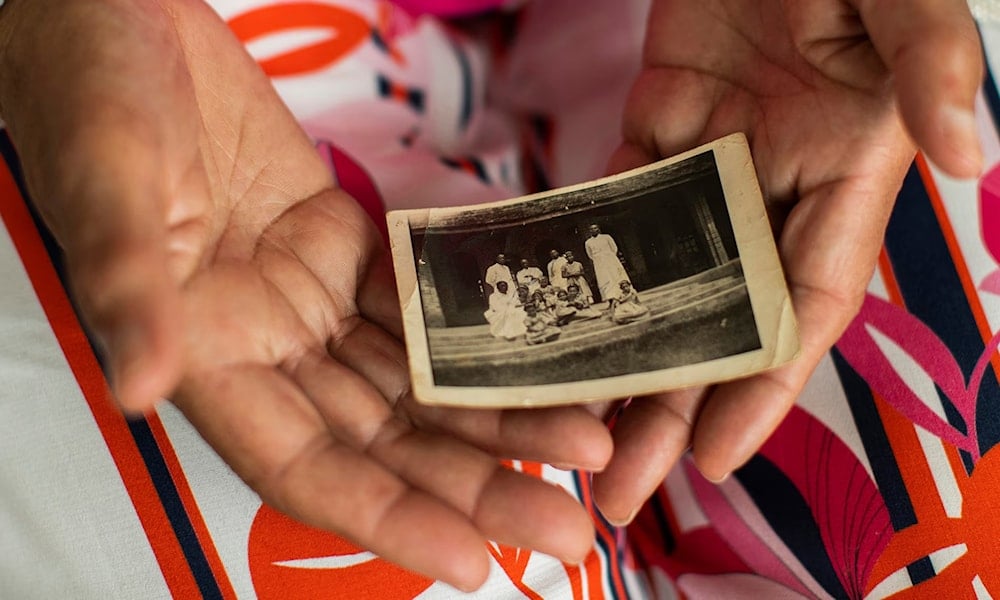Ruling on Belgium’s colonialism in Africa paves way for wider justice
Activists say that the verdict on crimes against humanity for the abduction of mixed-race children could open the door to broader accountability.
-

Monique Bitu Bingi, one of the plaintiffs in the case, holds a photo of herself as a young girl before she was forcibly removed from her parents. (Francisco Seco/AP)
A historic court ruling in Belgium, which found the country guilty of crimes against humanity for its colonial actions in central Africa, has been seen as a pivotal moment that could lead to compensation and further justice, The Guardian reported.
Belgium’s court of appeal recently ruled that the “systematic kidnapping” of mixed-race children from their African mothers in Belgian-controlled Congo, Rwanda, and Burundi between 1948 and 1953 was a crime against humanity.
The case was filed by five women, who were taken from their Congolese mothers as young children and now live in Belgium and France, each receiving €50,000 in damages.
Dive deeper
The policy, which affected thousands of metis—children of African mothers and European fathers—was driven by Belgium’s imperialist belief in white supremacy.
Many of these children were moved far from their mothers and placed in indifferent religious institutions with poor conditions and minimal education.
Francois Milliex, president of the Association of Métis of Belgium, said as quoted by The Guardian that the ruling "surely opens the door" for those seeking compensation for being separated from their parents.
Michele Hirsch, the lawyer for the five women, agreed that the decision could lead to reparations for others in similar circumstances but warned, "I think we are going to have to fight for it to happen."
Read more: Belgium found guilty of crimes against humanity in colonial Congo

 2 Min Read
2 Min Read








